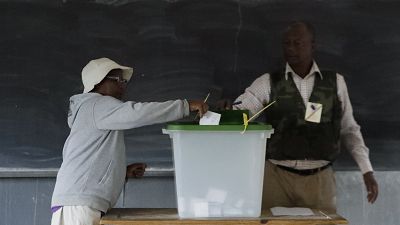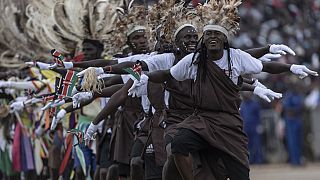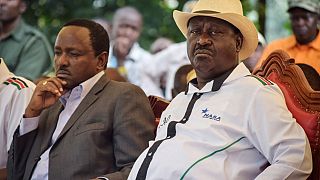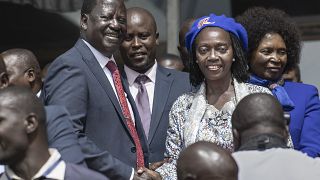Africa Elections
Elections have proven to be a fundamental contribution to democratic governance. Despite its aim of allowing a peaceful transfer of power, some elections are often marred by substantial violence. For instance, While a country like Zambia held a peaceful transfer of power in August 2021, Sub-Saharan Africa experienced a series of military takeovers in 2021, emphasizing the risky state of democracy in the continent.
If all goes well, national and local assembly elections will take place in Chad, Gambia, Lesotho, Libya, Segal, and Sierra Leone this year. However, it is likely elections in Angola, Kenya and Senegal will be ones to look out for in the months ahead. The results of elections in these three countries will significantly impact prospects for reversing democratic erosion, the extent to which civil society and countervailing institutions can keep leaders accountable.
Kenya
Kenya conducted its last presidential elections in 2017. The election had its own inconsistencies with the court identifying serious irregularities. Following a rerun, Uhuru Kenyatta emerged as the winner beating his major contender, Raila Odinga.
In December 2021, Raila Odinga launched his fifth bid for the presidency, this time with support from President Uhuru Kenyatta. Kenyatta, together with Odinga sought to introduce a range of institutional reforms through the Building Bridges Initiative (BBI). This was intended to allow power-sharing between the president and the prime minister and disregarding parliamentary approval of presidential appointees and appointing a regulator to oversee the judiciary. However, Kenya's high court rejected the bid, classifying it as unconstitutional.
Kenyatta’s exit from office creates the opportunity for former vice-president William Ruto and long-time opposition leader Raila Odinga to appear as frontrunners.
The collapse of the BBI has taken away the possibility of a larger executive where power is shared and Kenyatta has a position. This has upped the ante for the 2022 election, which is likely to be highly contested and disputed.
As the world waits to see the outcome of this election, there is an early sign of voter apathy as some Kenyans refused to register during the mass voter registration exercise.
Senegal: local elections, a test for Macky Sall before 2024
Senegal is expected to conduct local and legislative elections in 2022. This comes three years after President Macky Sall was re-elected for a second term.
The election, which will be held on January 23, will see citizens vote for mayors across 550 municipalities. Sitting mayors majority of whom are members of the ruling party were supposed to have left power in 2019 but are still serving due to the postponement of municipal elections.
How crucial is this poll?
The upcoming local elections are important for many reasons. First, they are a referendum on Sall’s presidency, which has stained the country’s democratic qualifications in recent years. Sall had attempted the amendment of the constitution to allow him to run for a third term.
As a sign of disapproval of all these, there has been a series of street protests mainly aimed at opposing the arrest of opposition leaders. The upcoming elections will also determine who leads Dakar, the country’s capital city, which has remained an opposition stronghold since 2009.
Ultimately, the outcome of the municipal elections is likely to have a significant impact on how Senegalese view the fairness of their country’s electoral processes, including the forthcoming legislative contest scheduled later in 2022.
Angola
The country's presidential polls will see incumbent João Manuel Lourenço of the People’s Movement for the Liberation of Angola seek a second term after he took over in 2017 from José Eduardo Dos Santos, who had been in power for nearly four decades. Lourenço faces opposition from a new coalition, the United Patriotic Front. According to Africa Report, the opposition “has the wind in its sails” while the MPLA is more divided than ever.
After his inauguration, he recovered over $3 billion stolen from the country’s sovereign wealth fund. The economic recession, poverty, and inequality have been the country's biggest concerns. Lourenço's bid for re-election is likely to be a referendum assessing governance during his first tenure. It will also be another test of the country's electoral process, which has largely favoured the ruling MPLA for several decades.
These, the first post-Dos Santos elections, will test the government's claims of progress in political and press freedom. Angola's political and governance direction could be determined by the quality of this electoral process.
Judging from existing and emerging political conflicts and crises, which continue to destroy the continent and its development, it may not be wrong to say Africa can expect some electoral challenges in 2022. Perhaps unless the regional bodies and African Union act with urgency, especially as major elections await the continent this year.














Go to video
Senegal’s finest sheep vie for bloodline prestige at pageant
00:28
Nairobi hawker shot at close range by police declared brain dead
01:06
China, Senegal pledge stronger strategic partnership during Beijing talks
01:50
Faith Kipyegon falls short of historic sub-four minute mile but vows to keep pushing
Go to video
Kenya's Interior minister accuses protesters of coup attempt after deadly demos
00:48
Death toll in Kenyan anti-government protests rises to 16, says rights group